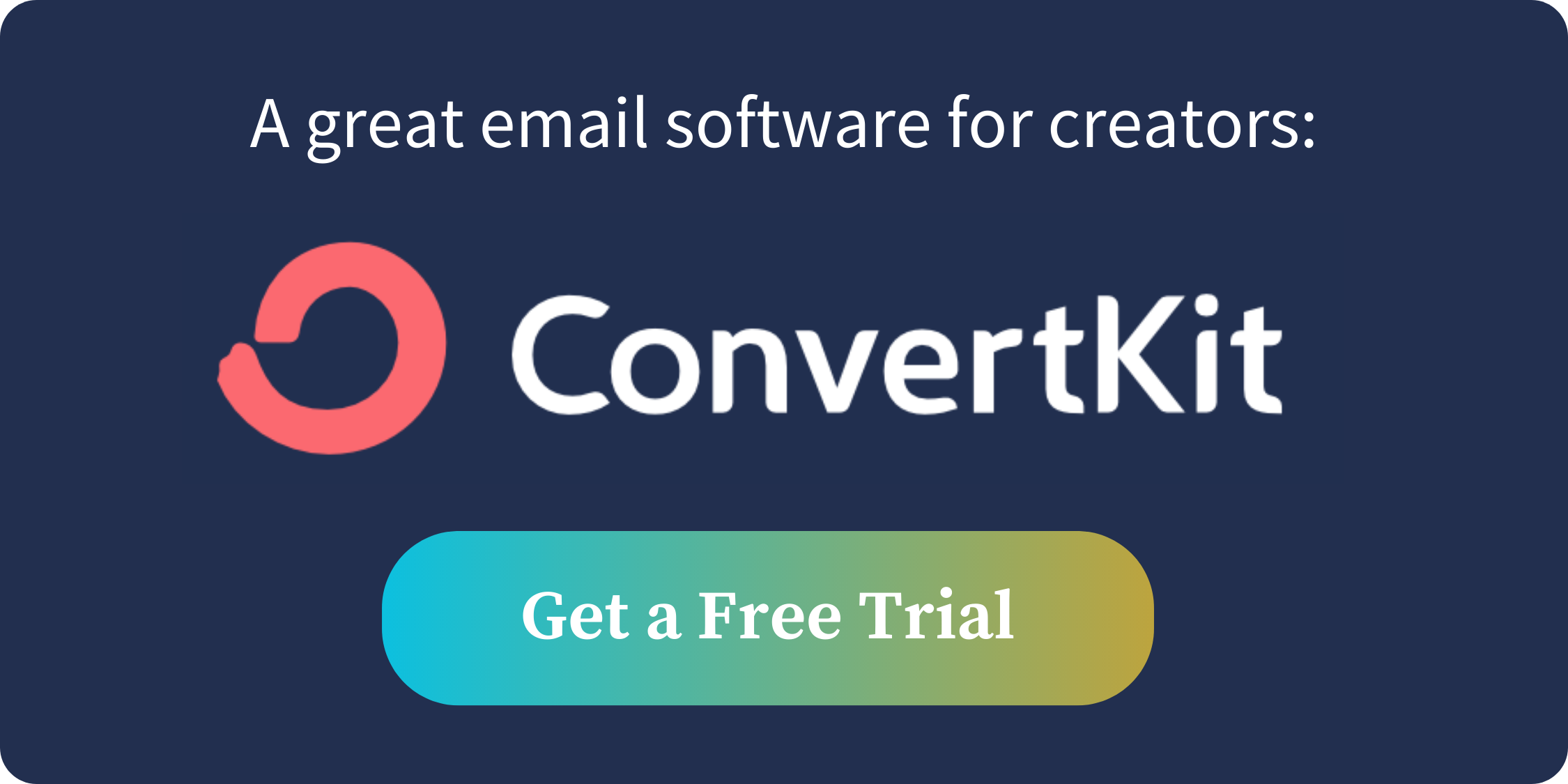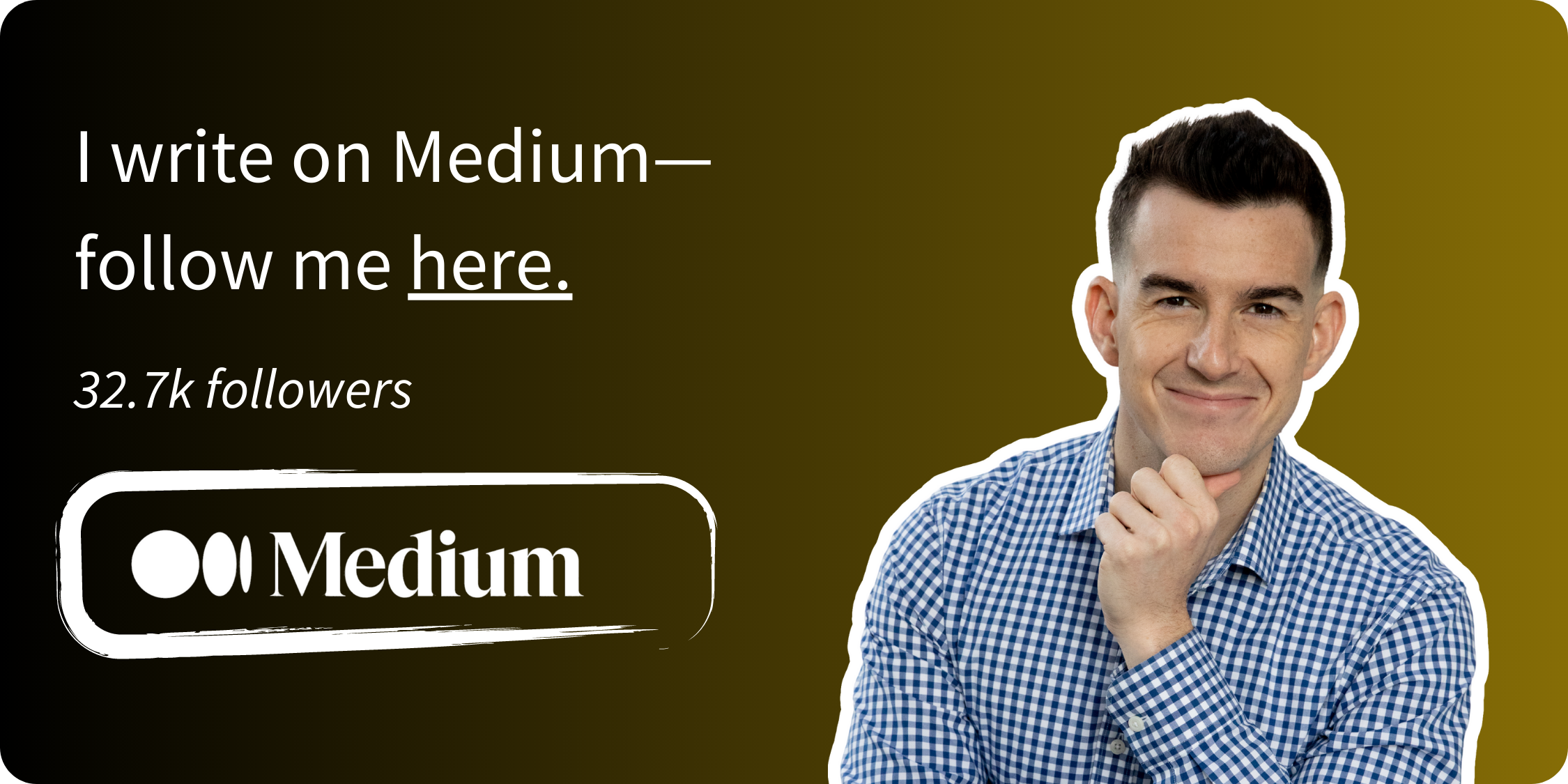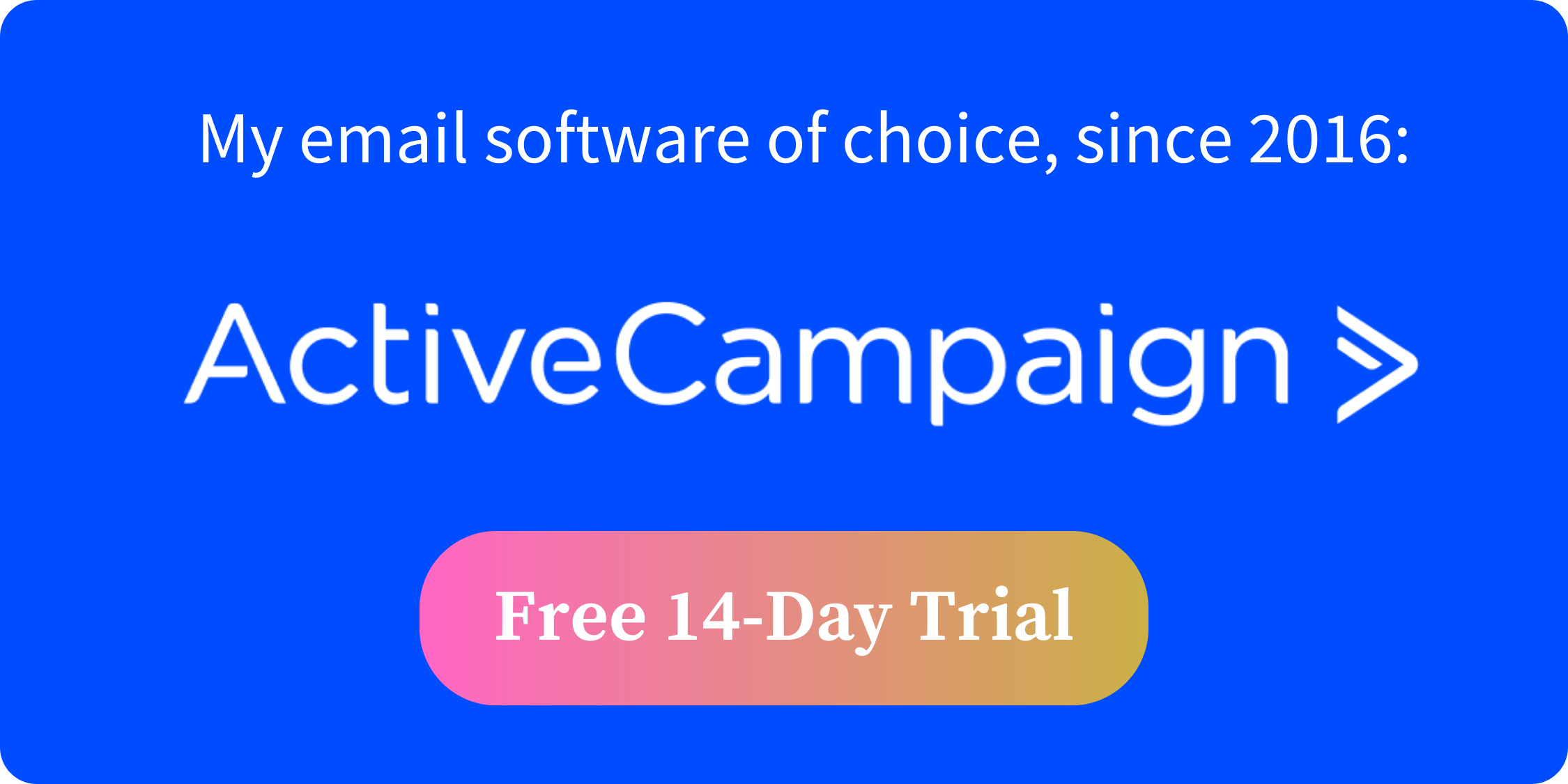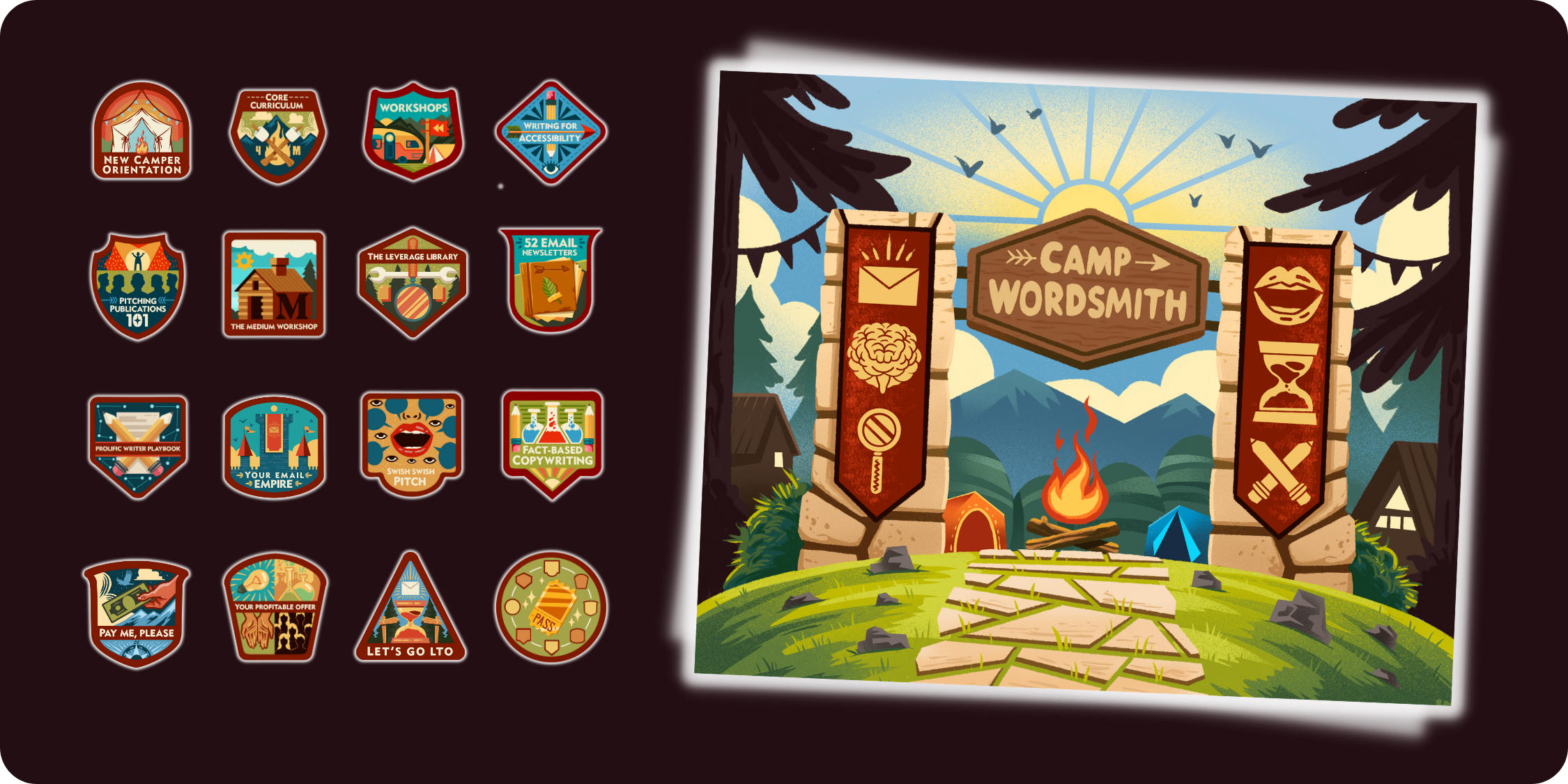Four score and seven rapid COVID tests ago, I attended a business mastermind here in Los Angeles. And over the course of the weekend, I learned new insights on the dynamic between traditional media and the creator economy that have me dramatically altering the direction of my online business.
Masterminds — usually defined as intensives, retreats, or even year-long programs with a “surround yourself with like-minded people” value proposition — can be tricky. The prices are often sky-high, and most of what you’re paying for is an amorphous “being in the room” deliverable. Depending on who else attends and who the special guests are, the actual value can vary widely.
But I knew I needed a dose of inspiration and some outside perspective. So I took a deep breath, wrote a very big check, and signed up.In one session, we were able to directly Q&A some Hollywood-based talent agents. These people represent a few celebrities, but mostly rep thinkers and creators and help them land various types of paid partnerships. I raised my hand. 🙋🏻♂️
There’s A Surprising New “Most Important” Metric For Book Agents And Talent Managers - Post Outline
And even though three or four other people were ahead of me to ask questions, my palms had already begun to sweat.
Soon it was my turn. Trembling a bit, I took the microphone and asked:
“What’s the most important thing creators or entrepreneurs need to demonstrate to be picked up by an agent for a book deal, paid endorsement, or TV show?”
Their answer was not what I was expecting — and it was the second time in a month I had heard this update from someone in the business of representing talent.
Earlier in the month, I had had a hello call with a prospective book proposal consultant. This consultant is picky, and only takes on clients whom she feels she can help land large, career-changing advances north of $100,000 USD.
She told me I wasn’t ready yet — which is also what the agents on this panel told me — because I don’t have this one metric dialed in.
- Is it to have a huge audience and millions of followers?
- Is it to be in big magazines or on national TV?
- Is it to go massively viral on TikTok or Twitter (or here) with the perfect post?
Nope.
When it comes to creators and entrepreneurs, the one metric that agents and talent managers have their eye on more than ever before is engagement.
Let’s discuss why.
Engagement: The New Golden Ticket
This revelation surprised me. I’d previously been told — even from TV producers, editors, and past coaches — that audience size was the biggest factor.
Audience size is certainly part of the equation. And you need an audience to play this online business game. But distribution companies and tech platforms no longer hand out contracts based on audience size alone.
Follower count has devolved into a vanity metric. Followers can be purchased, easily, on almost every platform. There are many ways to cheat and artificially inflate your follower count.
Agents already know this. That’s why they now prioritize engagement.
Engagement refers to whether you have evidence that people actually engage with your content.
- Engagement proves that you have a perspective.
- Engagement shows not only that you’ve found a lane, but also that the content you’re putting into that lane is resonating with readers, listeners, or viewers.
- Engagement identifies a “minimum viable audience” that is important to show off in later stages of your career.
Engagement can mean many different things
At first, I grieved.
One of the main reasons I came over to this platform in the first place was because comments don’t impact distribution. On platforms like Facebook and Instagram, comments make a big difference, so you have to comment back on comments, comment quickly, and so on.
(Also, ignoring comments was/is a mental health choice for me. I already have a peanut gallery in my head, I don’t need to monitor one on the internet. If someone actually wants to connect with me, emailing me is very easy to do.)
Engagement doesn’t have to just be social media comments, though. It could be, email open rates, downloads of your freebie, read time, or other important growth barometers.
Metrics matter to agents and talent managers. So you need to find your people on the internet and also help them find you.
And then someone needs to be able to hold a measuring stick up to those efforts and say “Yup, that’s engagement.”
So here are four ideas to get you started.
4 Ideas On How To Engage Your Audience
#1: Balance tiny requests with big value-adds
One of the best decisions I made this summer was to survey my email list and then follow-up and do 30-minute research calls with some of my respondents.
It has been so fun to talk with people from all over the world all summer long, learn what their hopes and dreams are, and hear about what they’re working on and what motivates them to do that.
What’s important to remember is that you can’t make requests like this all the time. You have to build up trust first and actually help people.
- Give away content for free.
- Help your audience get closer to their goals.
- Make interacting with you worth your reader’s time and attention.
If you’ve spent time making “deposits” into your audience and helping them, they’ll be more likely to reciprocate and take you up on requests down the line on things like surveys or offers.
#2: Remember the 90–9–1 rule
The 90–9–1 rule, sometimes called the 1% rule, says that in any internet community:
- 90% of users lurk and never comment/contribute,
- 9% of users intermittently contribute, and
- 1% of users heavily contribute and actually shape the majority of the dialogue.
I repeat: 90% of users lurk. This means it will often feel like you are talking into a void, which can get discouraging.
Sometimes readers love your content, *and* they don’t like publicly commenting on it for personal reasons. So it’s good to think about other ways you can collect data that proves readers are interacting with your content.
- For email, these metrics could be things like open rate, reply rate, and user activity.
- For social, seeing how long users watched a video or whether they swiped through a carousel of images could serve as a barometer for engagement.
- For a website, perhaps you look at user time-on-page. Or perhaps you get brutally honest with yourself, download a free tool like Hotjar, and embrace the truth about what your visitors do and don’t do when they visit your site.
#3: Explore principles of neuromarketing
Neuromarketing is a fairly new term in which companies prioritize consumers’ subconscious behaviors more than what they say they want. Companies use fancy technologies like functional magnetic resonance imaging (fMRI) to measure this data.
In an article for the Harvard Business Review, editor Eben Harrell cited the following research:
“In 2012 researchers at Emory found that activity in a specific brain area, measured by fMRI while people were listening to music, significantly correlated with a song’s future popularity as measured by sales data three years later. But when participants were asked how much they liked the songs they heard, their responses did not predict sales.”
Translation: Consumers will often tell you they want one thing, but behind the scenes their brain chemistry registers something totally different. Big corporations use neuromarketing to see the knee-jerk responses humans have to things like slogans, graphics, or other marketing stimuli.
The good news is that you don’t need an fMRI machine in your living room to take advantage of some of the principles of neuromarketing.
It’s certainly worthwhile to engage your readers and hear about what they are working on and what they have to say. But it’s also good to look at how people are actually behaving as they interact with you and your online brand.
This is the intel we want as we steer the ship.
Measure what elicits the desired behaviors you want from your readers. Then do more of that and less of the rest.
#4: Make your audience smaller (Wait — what?)
That’s right.
Now that I’m clear that even email list size doesn’t make a big difference anymore to agents and publishers, I see no reason to continue sending my best content to people who haven’t read anything from me in ages.
So I’ve put an auto-unsubscribe email sequence in place. If someone hasn’t opened an email from me in several months, they are moved into an automation where I send them a couple “last call” emails, then unsubscribe them.
I turned this light switch on… yesterday. I was bracing to lose thousands of subscribers, but it’s not as bad as I expected.
About 1,050 people are on the chopping block this week, and in my copy I invite readers to follow me here or on Instagram instead if they prefer.
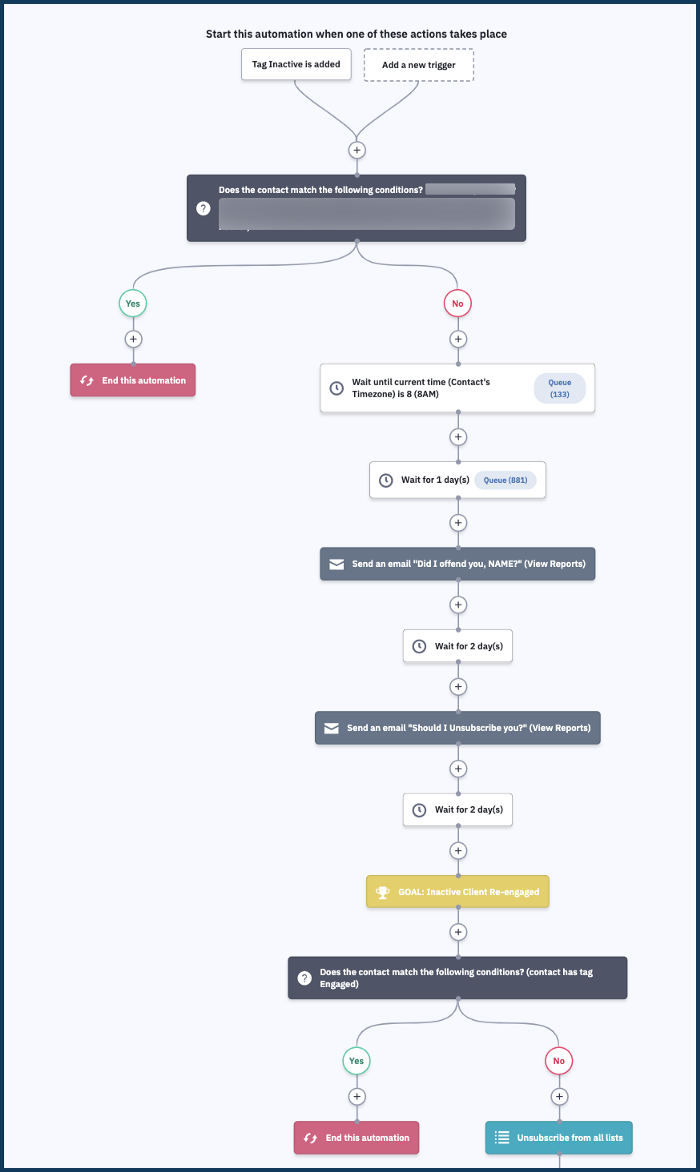
Screenshot from author. Disengaged email subscribers are now offboarded after 120 days. Past clients remain subscribed.
It’s tough to let go of these hard-earned email subscribers. Y’all know I preach building an email list like nobody’s business.
But much like dating, sometimes people are hot for you and your flavor one moment, and then a few days or weeks later the sizzle fizzles out.
I’d rather have a smaller audience of people who like my flavor than a giant audience that doesn’t even know who the hell I am. It may make sense for you to do the same.
Final Takeaways
It’s official: Hollywood and other non-Hollywood agents who look to represent talent and creators want to see engagement.
So let’s redefine “growing an audience” to be more about connecting with the right people than lots of people.
When you do this, you’ll not only position yourself for exciting opportunities down the line… you’ll maintain more of your sanity along the way as you navigate your online entrepreneurship adventure.
Thanks for reading. 🙏🏼
Consider taking one of the following next steps:
📣 Share this post with your network or a friend. Sharing helps spread the word, and posts are both easy to read and easy to curate – you'll look savvy and informed.
📲 Join the party on another platform. I currently create on Medium and Instagram – come say hello.
📬 Sign up for my free email list. This is where my best, most exclusive and most valuable content gets published. Use any of the signup boxes in this article, or go to the newsletter page here.
🏕 Join a community: Camp Wordsmith™ is my business and writing incubator for entrepreneurs. We open doors for free challenges and enrollment throughout the year. Learn more here.
📊 Hire my marketing company: Hefty Media Group provides consultation and done-for-you services in content marketing. We'll make you sound damn good using the written word – reach out to us here.
© 2021, 2022, Hefty Media Group. All Rights Reserved.



